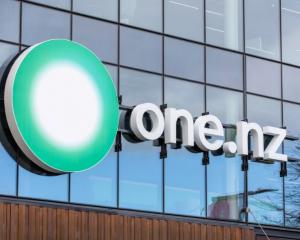A new battle may also be on the horizon as the petroleum sector and environmentalists seek to turn the hearts, minds and votes of ''middle New Zealand'' toward their respective objectives, given there is no chance of compromise between them.
The petroleum industry's commitments are partially because of earlier contractual arrangements, of permitting requirements and in-place work programmes, but they also show the industry maintains long-term views on oil demand and prices.
The exploration emphasis remains North Island-centric, but its East Coast onshore and offshore tenements are attracting more attention, while the major explorers in the Great South Basin and Canterbury Basin continue appraisals in 2-D and 3-D hydrographic seismic surveys.
The mood of the more than 500 attendees at the inaugural three-day Advantage New Zealand Petroleum Summit 2015 in Auckland this week was positive, especially given the oil price slump and numerous dry test wells reported by companies.
There have been 35 exploration permits issued by the present Government since it came to power, having immediately identified that the up-to-$4-billion petroleum sector should be promoted as a cornerstone for economic revival.
High-profile Taranaki is just one of 18 basins, on and offshore, around the country, some of the latter yet to be explored for the first time.
High on the agenda of many conference speakers was dealing with the growing voice of dissension of hardened environmentalists, committed solely to no drilling or extraction of oil or gas, and broaching little or no discussion on moving to non-fossil, renewable energy sources.
The most hard-core of environmentalists will wear, as a badge of honour, reports that the petroleum sector has recognised and given up on attempts to sway their opinions.
While environmentalists have made huge inroads in attracting public sympathy in recent years, underpinned by the maritime disaster involving the container ship Rena off Tauranga, engagement with New Zealand's wider communities was an underlying theme during the conference.
In admitting the oil companies and the Government were seen as having too many vested interests to be viewed as entirely honest, speakers and some delegates identified ''middle New Zealand'' and ''the other 80%'' for future engagement.
To promote independence, the petroleum sector is hoping other sectors such as transport, farming and fishing will take up its message about the necessity of oil and gas for industry and how that benefits local communities.
Unlike the oil and gas sector's poorer cousin, the onshore mining sector, there are few opportunities for junior companies to enter into New Zealand's high-risk frontier exploration sector, meaning few visible casualties during hard times.
Globally, including in New Zealand, the mining juniors fell by the wayside during the global financial crisis, followed by a long-term funding crisis, then the plunging commodity prices of the past 12 to 18 months.
However, New Zealand's petroleum sector incorporates some of the world's biggest players, including Shell, Anadarko, Statoil, OMV and Schlumberger, who have ridden out crises over multiple decades.
In looking to sway middle New Zealand, the opinion of the wider public may yet be tested another way also.
That test will be the extent of future demands made on the Government by those major companies seeking to ease the existing regulatory regime, and the palatability of that for middle New Zealanders.
• Simon Hartley was assisted to attend the conference by Pepanz and Freeman Media.











